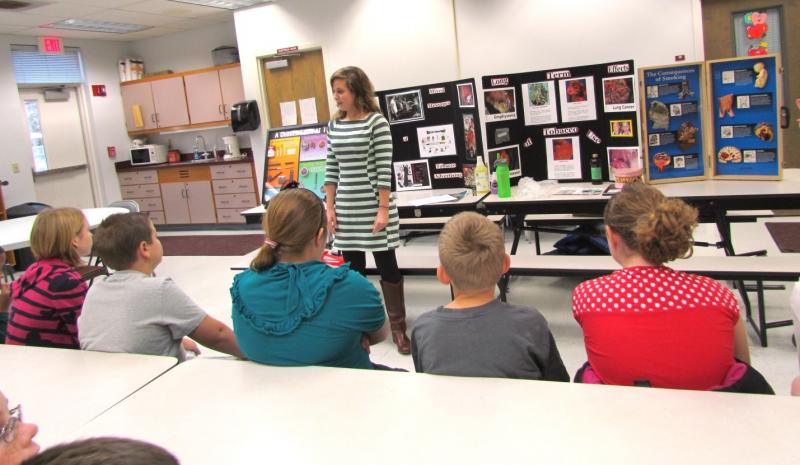Jennie Proto: My Personal Understanding of Public Health
Being in contact with so many students, there are many moments that stick out in my mind. After all, the kids always have surprises up their sleeves! Over the past year, they have kept me on my toes, all the while strengthening my personal definition of public health, especially relating to a rural community. To me, public health encompasses every aspect of life, from one’s education, family situation, access to health care services, neighborhood, to economic status. However, these larger categories can mean so many things, particularly when it concerns living in poverty.
 |
|
Jennie Proto facilitating a health education class with youth
|
I have witnessed this true meaning of public health through the dental program at the health department in Baker County. Each week, I attend to first through third grade students bussed over to the health department’s dental office from a local elementary school. These students have told me all kinds of stories and tidbits from their lives—really firsthand accounts of the meaning of how living in poverty can affect one’s overall being. For some, this reality of quality of life is better than others. One way I have learned to tell is by looking at their mouths—an indication of what life may look like for them later—as oral health is connected to serious diseases such as osteoporosis, cardiovascular disease, and diabetes.
Apart from these life-threatening concerns, however, are some major ones that affect these children’s everyday lives—issues that overwhelm the need for regular health care visits. For instance, maybe it means a child has a parent in jail—I will never forget a boy saying he couldn’t remember how tall his dad is—or his or her mother has a live-in boyfriend that he or she doesn’t like. Or, it could mean that a child is living in a home infested with fleas that his or her parent can’t afford to exterminate. Perhaps, the child goes home one day to find his or her bed gone because the family needed the money. The hardest story to hear was a girl who did not pass first grade because she didn’t have glasses.
These are just a few examples of things among many I heard when facilitating learning activities for the dental kids. However, they, among others, have truly impacted how I view a rural community and the great impact of the health department has on it. They provide services that these children would likely not receive otherwise. These services cannot fix all the structural problems in these children’s lives, but they do address critical needs, which inevitably impact the children’s future positively.